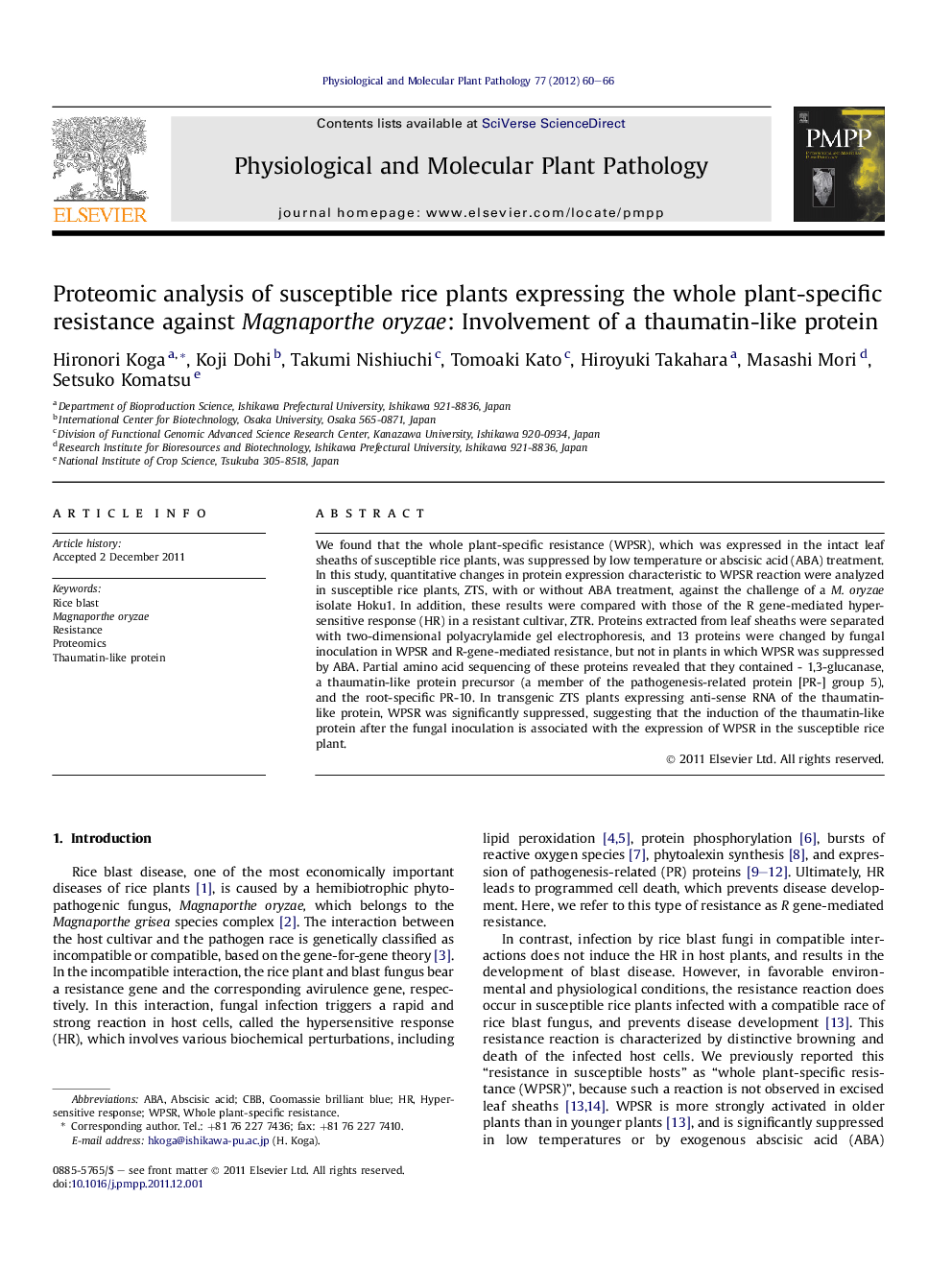| Article ID | Journal | Published Year | Pages | File Type |
|---|---|---|---|---|
| 2836474 | Physiological and Molecular Plant Pathology | 2012 | 7 Pages |
We found that the whole plant-specific resistance (WPSR), which was expressed in the intact leaf sheaths of susceptible rice plants, was suppressed by low temperature or abscisic acid (ABA) treatment. In this study, quantitative changes in protein expression characteristic to WPSR reaction were analyzed in susceptible rice plants, ZTS, with or without ABA treatment, against the challenge of a M. oryzae isolate Hoku1. In addition, these results were compared with those of the R gene-mediated hypersensitive response (HR) in a resistant cultivar, ZTR. Proteins extracted from leaf sheaths were separated with two-dimensional polyacrylamide gel electrophoresis, and 13 proteins were changed by fungal inoculation in WPSR and R-gene-mediated resistance, but not in plants in which WPSR was suppressed by ABA. Partial amino acid sequencing of these proteins revealed that they contained - 1,3-glucanase, a thaumatin-like protein precursor (a member of the pathogenesis-related protein [PR-] group 5), and the root-specific PR-10. In transgenic ZTS plants expressing anti-sense RNA of the thaumatin-like protein, WPSR was significantly suppressed, suggesting that the induction of the thaumatin-like protein after the fungal inoculation is associated with the expression of WPSR in the susceptible rice plant.
► ABA suppressed whole plant-specific resistance (WPSR) in susceptible rice plant. ► We examined changes protein level of WPSR either with ABA or fungal treatment. ► A thaumatin-like protein (TLP) was accumulated in WPSR and was compromised by ABA. ► Overexpression of TLP mRNA revealed restriction of fungal development in planta. ► Accumulation of TLP is important for the induction of WPSR in susceptible rice plant.
